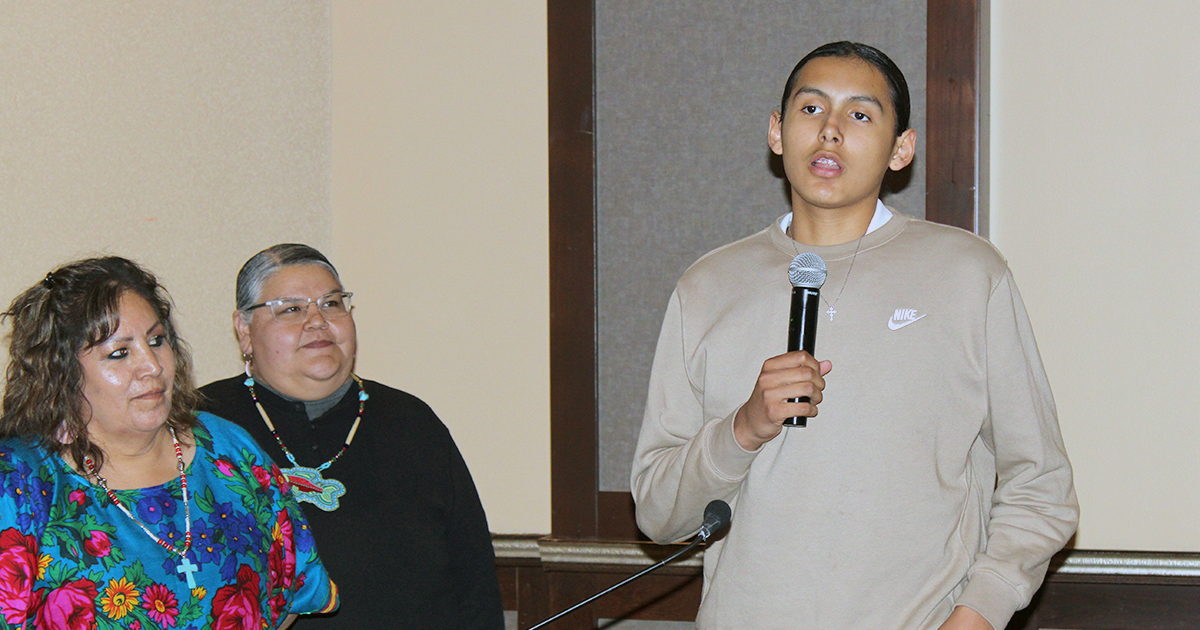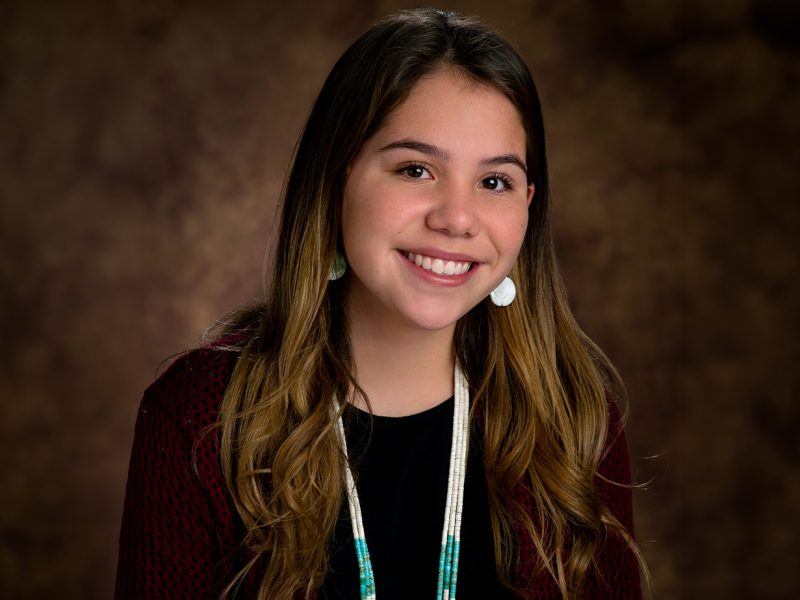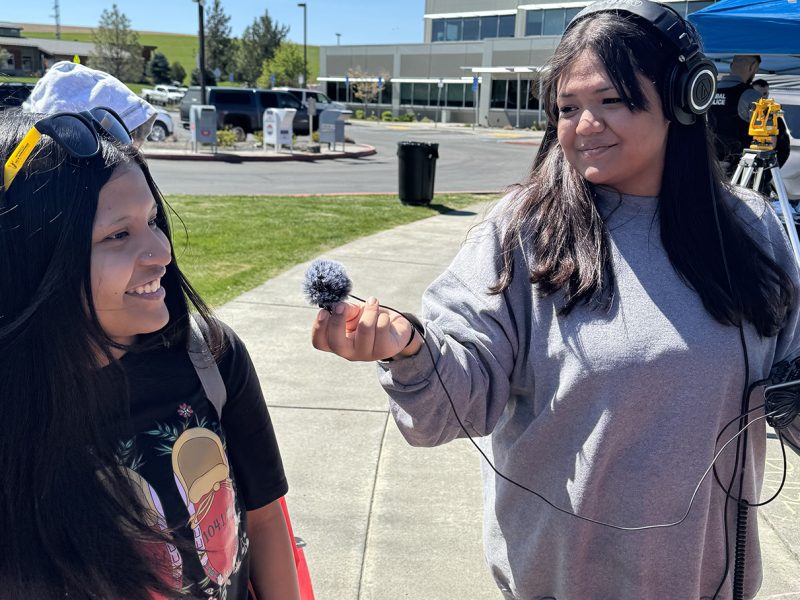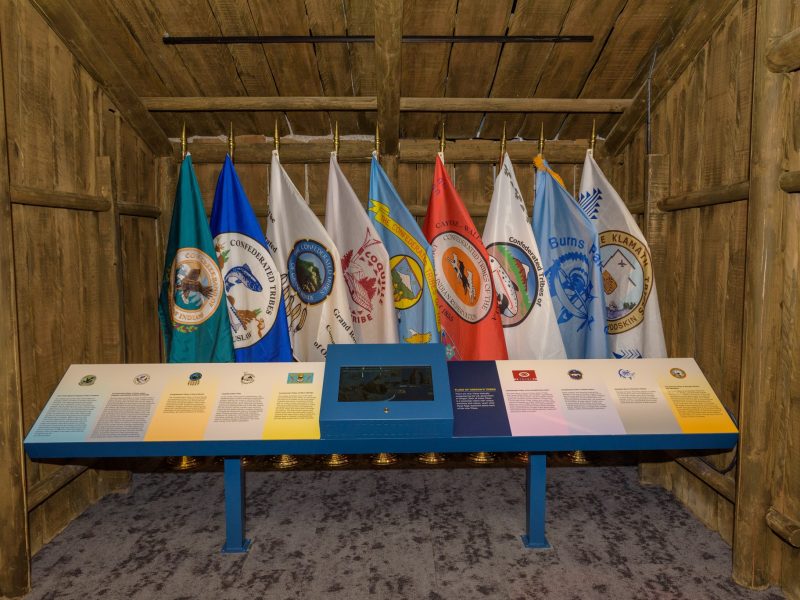MISSION – In collaboration with the Columbia River Inter-Tribal Fish Commission (CRITFC), the Confederated Tribes of the Umatilla Indian Reservation (CTUIR) on Wednesday, May 22 hosted the first-ever Salmon Keepers dinner at the Wildhorse Resort & Casino.
Corinne Sams, CTUIR Board of Trustees Member at Large and CRITFC chair, said the event highlighted the work CRITFC and its member tribes (CTUIR, Yakama Nation, Nez Perce Tribes and Warm Springs Tribes) are doing in the Columbia River, Snake River Basin and tributaries to rebuild native fish, as well as invited youth and families from the four tribes to learn about and share information regarding salmon.
“This event was built from robust discussions at the CRITFC table from commissioners, but mainly from our elder commissioners. These elders continue to emphasize the importance of sharing our rich history and long litigation battles that upheld all four Columbia River Treaty Tribes’ reserved rights, including in all our usual and accustomed areas,” Sams said. “Our intention is to inform our membership of the issues that are continuing to contribute to our declining salmon runs such as climate change, poor fish passage, water quality, habitat, instream flow, sediment build up, hydropower systems and much more.”
Aside from dinner, attendees were provided information about the Belloni and Boldt decisions. In 1974, Judge George H. Boldt’s ruling in the case of U.S. v. State of Washington affirmed tribal sovereignty and secured Washington tribes the right to fish at usual and accustomed grounds. Five years earlier, in Sohappy v. Smith/U.S. v. Oregon, Judge Robert C. Belloni ruled that Columbia River treaty tribes had an “absolute right” to a fair share of fish runs. Belloni emphasized tribal sovereignty and called for separate consideration of tribal fisheries alongside non-treaty commercial and recreational fisheries.
Other topics on the agenda included fishing rights 101 and conservation. Attendees also heard about the importance of First Fish, First Kill and First Dig ceremonies after a Yakama CRITFC commissioner felt the youth needed to recognize and understand the importance of continuing such ceremonies, Sams said.
“This is the time you are standing yourself up to be a provider of our foods to yourself, your family and your people,” she said. “Our way of life depends on our connections to the foods, land, body, spirit and unwritten laws to protect our sacred foods. We have unwritten laws that are vital to how we take care of ourselves, others, our foods and way of life.”
Among the approximate 130 people in attendance, 16-year-old Weptas Brockie, who serves as the CTUIR Senior Youth Council chairman, said he attended because he wanted to learn more about salmon and how he can make a difference in their restoration.
He said he’s been interested in native fish restoration since the sixth grade when he learned that salmon were in danger.
“It’s a concern because salmon is very sacred to our people. It’s one of our first foods, and right now the water keeps getting hotter and hotter, so the fish are depleting. And the dams are causing the fish to not be as plentiful as they used to be, and not as many are coming back each year,” Brockie said. “Other youth should attend events like this because they need to learn more about their culture, and even if they aren’t Native, they should learn this information because salmon is a keystone species. It brings nutrients up the water for plants to grow. That’s what I’ve learned. And they should attend to show that they care. It’s a concerning issue.”
Along with CRITFC, the CTUIR programs and departments that helped conduct the Salmon Keepers event were Fish and Wildlife Commission, Fisheries Program, First Foods Program, Family Engagement Program and Department of Children and Family Services.



